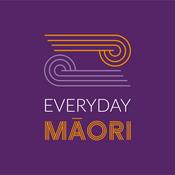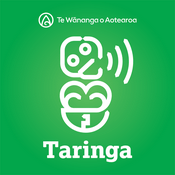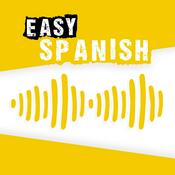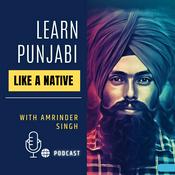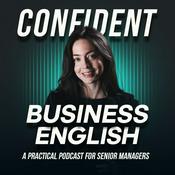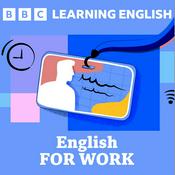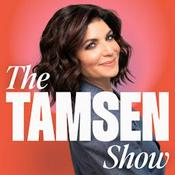44 episodes
- The collision between the bulk carrier Polesie and the general cargo ship Verity on October 24, 2023, was caused by a failure of both bridge teams to effectively apply the 1972 COLREGs in a crossing situation. Verity, as the give-way vessel, failed to take early and substantial action to stay clear, while Polesie, the stand-on vessel, did not maintain a predictable course and speed, instead making small, incremental course adjustments to port that compounded the confusion. Contributing factors included a lack of direct bridge-to-bridge communication—exacerbated by the VTS radio configuration—and the absence of a Voyage Data Recorder on Verity, which hindered a full reconstruction of the final decision-making process.
Barry discusses the new report and highlights areas where he feels the report did not discuss fully enough. Comparison with case law has skewed the outcome of the report and Barry discusses the dangers in this.
Come and Visit our Website
https://www.captainbarrysadler.com/
At Captain Barry Sadler Maritime Training & Consultancy we deliver industry-leading online courses, oral exam preparation, and professional resources for deck officers, cadets, and maritime professionals. Fully aligned with UK MCA standards, our training helps you build knowledge, confidence, and a successful career at sea.
Check Out Our MCA Questions Apps
https://captainbarrysadler-colregs-quiz.base44.app
Follow us
Linkedin
Instagram
X
Facebook - The loss of the Prestige remains one of the most contentious maritime disasters in history due to the fundamental conflict between the Bahamas Maritime Authority’s technical focus on structural failure and the Spanish authorities' emphasis on criminal negligence. While the BMA and international salvors argue that the ship was a victim of a "death march"—where the refusal of a Place of Refuge and the decision to tow the vessel into a North Atlantic storm caused its final breakup—the Spanish Supreme Court ultimately ruled that the Master and owners acted with "environmental recklessness." This judicial pivot, finalized in 2016, sought to bypass international liability caps to access a $1 billion insurance policy, a move that has resulted in a twenty-year legal stalemate between Spanish mandates and English contract law.
In this follow up to the last Podcast 'The Oil Compensation Minefield' Barry describes what happened that fateful night 24 years ago and describes the fallout from one of Europes worst maritime pollution disasters to date.
Come and Visit our Website
https://www.captainbarrysadler.com/
At Captain Barry Sadler Maritime Training & Consultancy we deliver industry-leading online courses, oral exam preparation, and professional resources for deck officers, cadets, and maritime professionals. Fully aligned with UK MCA standards, our training helps you build knowledge, confidence, and a successful career at sea.
Check Out Our MCA Questions Apps
https://captainbarrysadler-colregs-quiz.base44.app
Follow us
Linkedin
Instagram
X
Facebook - While the CLC 1992 and the 2001 Bunker Convention are both strict liability regimes requiring compulsory insurance and allowing direct action against insurers, they are mutually exclusive in scope: the CLC 1992 focuses specifically on pollution from tankers carrying persistent oil as cargo, whereas the Bunker Convention fills the "gap" by covering fuel oil spills from non-tanker vessels (such as bulkers and container ships). A critical distinction lies in their structure, as the CLC provides a specialised multi-tier compensation system linked to the IOPC Fund with its own internal liability limits, while the Bunker Convention lacks an international fund and relies on separate regimes like the LLMC for limitation of liability, making liability under the bunker convention much smaller.
Barry discusses both funds and explains why owners may try and apply the bunker convention over the 1992 CLC to limit their liability. The case of the tanker 'Prestige' is used to demonstrate how this is sometimes forced.
Come and Visit our Website
https://www.captainbarrysadler.com/
At Captain Barry Sadler Maritime Training & Consultancy we deliver industry-leading online courses, oral exam preparation, and professional resources for deck officers, cadets, and maritime professionals. Fully aligned with UK MCA standards, our training helps you build knowledge, confidence, and a successful career at sea.
Check Out Our MCA Questions Apps
https://captainbarrysadler-colregs-quiz.base44.app
Follow us
Linkedin
Instagram
X
Facebook - While both Marine Gas Oil (MGO) and Ultra Low Sulphur Fuel Oil (ULSFO) both meet the 0.1% sulphur limit for Emission Control Areas (ECAs), they are fundamentally different: Marine Gas Oil (MGO) is a pure, "clear and bright" distillate that behaves like high-grade diesel and is generally the most reliable and expensive option, requiring no heating but posing risks of low-viscosity leakage or "dry" injector wear. In contrast, Ultra Low Sulphur Fuel Oil (ULSFO) is typically a "hybrid" blend containing residual oil components, making it cheaper and more lubricious but technically complex, as it requires onboard heating to reach injection viscosity and carries a high risk of chemical instability or "sludging" if mixed with other fuels.
Barry discusses a recent act of pilotage that he did where the choice between the two types of fuel may have made the main engine fluctuate and the Master forced to declare that he may have a problem. His hands-on current practice as a pilot allows him to give a unique perspective into the fuelling decisions being made in Northern Europe.
Come and Visit our Website
https://www.captainbarrysadler.com/
At Captain Barry Sadler Maritime Training & Consultancy we deliver industry-leading online courses, oral exam preparation, and professional resources for deck officers, cadets, and maritime professionals. Fully aligned with UK MCA standards, our training helps you build knowledge, confidence, and a successful career at sea.
Check Out Our MCA Questions Apps
https://captainbarrysadler-colregs-quiz.base44.app
Follow us
Linkedin
Instagram
X
Facebook - On December 6th 2025, the Baltic Klipper lost 16 containers overboard in the Solent near Nab Tower after experiencing severe rolling in heavy weather. HM Coastguard was alerted and issued navigational warnings as the drifting containers posed a significant hazard to one of the UK’s busiest waterways. Aerial searches located several containers, and over the following days eleven washed ashore along the West Sussex coastline, including Selsey and Pagham. Although most boxes contained fruit and were not hazardous, authorities warned the public to avoid the wreck material. The incident caused operational disruption to local shipping, including delays to passenger vessels, while recovery and investigation efforts continued.
Barry discusses the incident, some of the problems caused and how liability can be apportioned under internationally agreed carriage of cargo rules.
Come and Visit our Website
https://www.captainbarrysadler.com/
At Captain Barry Sadler Maritime Training & Consultancy we deliver industry-leading online courses, oral exam preparation, and professional resources for deck officers, cadets, and maritime professionals. Fully aligned with UK MCA standards, our training helps you build knowledge, confidence, and a successful career at sea.
Check Out Our MCA Questions Apps
https://captainbarrysadler-colregs-quiz.base44.app
Follow us
Linkedin
Instagram
X
Facebook
More Education podcasts
Trending Education podcasts
About The Maritime Education Podcast
Captain Barry Sadler discusses maritime topics including recent changes to maritime practices, shipping incidents, new legislation, real life lessons from his ongoing pilotage career, hot MCA examination topics and maritime issues in general. With 40 years experience in the professional maritime field, Barry's take on various nautical and shipping matters is in depth and accurate with insightful views on all affairs maritime. If you work, watch or enjoy the sea his podcast will inform and entertain you.
Podcast websiteListen to The Maritime Education Podcast, 6 Minute English and many other podcasts from around the world with the radio.net app
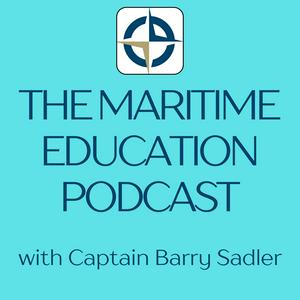
Get the free radio.net app
- Stations and podcasts to bookmark
- Stream via Wi-Fi or Bluetooth
- Supports Carplay & Android Auto
- Many other app features
Get the free radio.net app
- Stations and podcasts to bookmark
- Stream via Wi-Fi or Bluetooth
- Supports Carplay & Android Auto
- Many other app features


The Maritime Education Podcast
Scan code,
download the app,
start listening.
download the app,
start listening.



